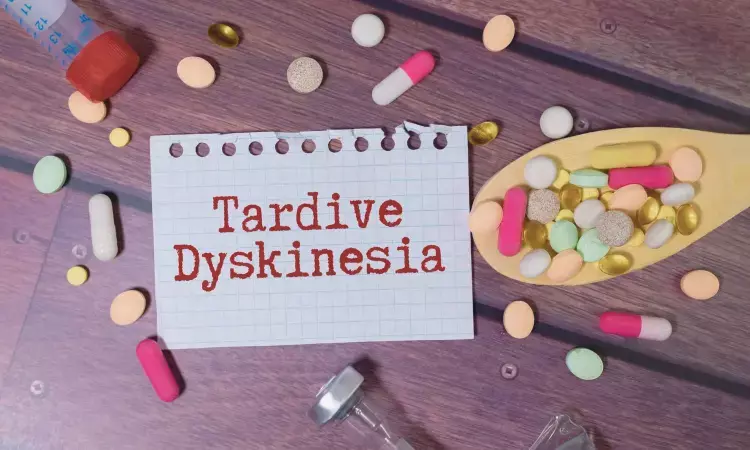- Home
- Medical news & Guidelines
- Anesthesiology
- Cardiology and CTVS
- Critical Care
- Dentistry
- Dermatology
- Diabetes and Endocrinology
- ENT
- Gastroenterology
- Medicine
- Nephrology
- Neurology
- Obstretics-Gynaecology
- Oncology
- Ophthalmology
- Orthopaedics
- Pediatrics-Neonatology
- Psychiatry
- Pulmonology
- Radiology
- Surgery
- Urology
- Laboratory Medicine
- Diet
- Nursing
- Paramedical
- Physiotherapy
- Health news
- Fact Check
- Bone Health Fact Check
- Brain Health Fact Check
- Cancer Related Fact Check
- Child Care Fact Check
- Dental and oral health fact check
- Diabetes and metabolic health fact check
- Diet and Nutrition Fact Check
- Eye and ENT Care Fact Check
- Fitness fact check
- Gut health fact check
- Heart health fact check
- Kidney health fact check
- Medical education fact check
- Men's health fact check
- Respiratory fact check
- Skin and hair care fact check
- Vaccine and Immunization fact check
- Women's health fact check
- AYUSH
- State News
- Andaman and Nicobar Islands
- Andhra Pradesh
- Arunachal Pradesh
- Assam
- Bihar
- Chandigarh
- Chattisgarh
- Dadra and Nagar Haveli
- Daman and Diu
- Delhi
- Goa
- Gujarat
- Haryana
- Himachal Pradesh
- Jammu & Kashmir
- Jharkhand
- Karnataka
- Kerala
- Ladakh
- Lakshadweep
- Madhya Pradesh
- Maharashtra
- Manipur
- Meghalaya
- Mizoram
- Nagaland
- Odisha
- Puducherry
- Punjab
- Rajasthan
- Sikkim
- Tamil Nadu
- Telangana
- Tripura
- Uttar Pradesh
- Uttrakhand
- West Bengal
- Medical Education
- Industry
Vitamin E Shows Promise for Treating Antipsychotic-Induced Movement Disorders: A Case Report

Dubai: Antipsychotic medications are essential in managing psychiatric conditions like schizophrenia and bipolar disorder, but they often come with severe side effects. Among these, extrapyramidal symptoms (EPS) and tardive dyskinesia (TD) are particularly challenging, causing involuntary, repetitive movements that can significantly impair quality of life. A recent case report published in Cureus Journal sheds light on the potential effectiveness of vitamin E as an adjunctive treatment for these debilitating conditions.
This case highlights the potential effectiveness of vitamin E in treating TD and other EPS, especially when introduced early in the progression of the disorder.
The case concerns a 28-year-old man with a psychotic disorder who developed severe EPS and TD after receiving paliperidone injections. Symptoms included muscle rigidity, parkinsonian gait, and pronounced involuntary motor disturbances. Despite discontinuing paliperidone and trying multiple conventional treatments—including procyclidine, propranolol, clonazepam, and omega-3 supplements—his symptoms persisted.
A novel approach was adopted with the introduction of oral vitamin E at a dose of 400 IU daily. The patient showed a remarkable 80% reduction in symptoms within weeks. His Abnormal Involuntary Movement Scale (AIMS) score, a tool used to assess TD severity, dropped from 24 to 4. Encouraged by these results, clinicians gradually increased the vitamin E dosage to 1200 IU daily while tapering other medications. Ultimately, the patient experienced a complete resolution of symptoms, with his AIMS score reaching 0 and no recurrence of psychotic episodes.
This case by Syed Ali Bokhari, Psychiatry, Al Amal Psychiatric Hospital, Emirates Health Services, Dubai, ARE, and colleagues highlights vitamin E’s potential as an effective treatment for TD and EPS, particularly in patients unresponsive to standard therapies. The antioxidant properties of vitamin E are thought to combat oxidative stress, which plays a role in TD’s pathophysiology. Although research on vitamin E’s efficacy in treating TD has been mixed, this report contributes to growing evidence supporting its benefits, especially when initiated early.
The patient’s recovery underscores the importance of exploring alternative treatments for antipsychotic-induced side effects. It also emphasizes the need for larger clinical trials to determine optimal dosing and identify patients most likely to benefit from vitamin E therapy.
For individuals affected by antipsychotic-induced TD, vitamin E may represent a hopeful step toward improved management of this challenging condition, offering not only symptom relief but also a chance at a better quality of life.
"Although existing literature offers mixed evidence on the effectiveness of vitamin E, this case contributes to the expanding research indicating its potential benefits, particularly when administered early in the disease. Larger-scale studies are needed to determine optimal treatment protocols and identify the patient groups most likely to respond favorably to vitamin E therapy," the researchers concluded.
Reference:
Elnoor M, Bokhari S, Singh M, et al. (August 30, 2024) Effectiveness of Vitamin E in Treatment of Antipsychotic-Induced Tardive Dyskinesia and Extrapyramidal Symptoms: A Case Report. Cureus 16(8): e68231. doi:10.7759/cureus.68231
Dr Kamal Kant Kohli-MBBS, DTCD- a chest specialist with more than 30 years of practice and a flair for writing clinical articles, Dr Kamal Kant Kohli joined Medical Dialogues as a Chief Editor of Medical News. Besides writing articles, as an editor, he proofreads and verifies all the medical content published on Medical Dialogues including those coming from journals, studies,medical conferences,guidelines etc. Email: drkohli@medicaldialogues.in. Contact no. 011-43720751


